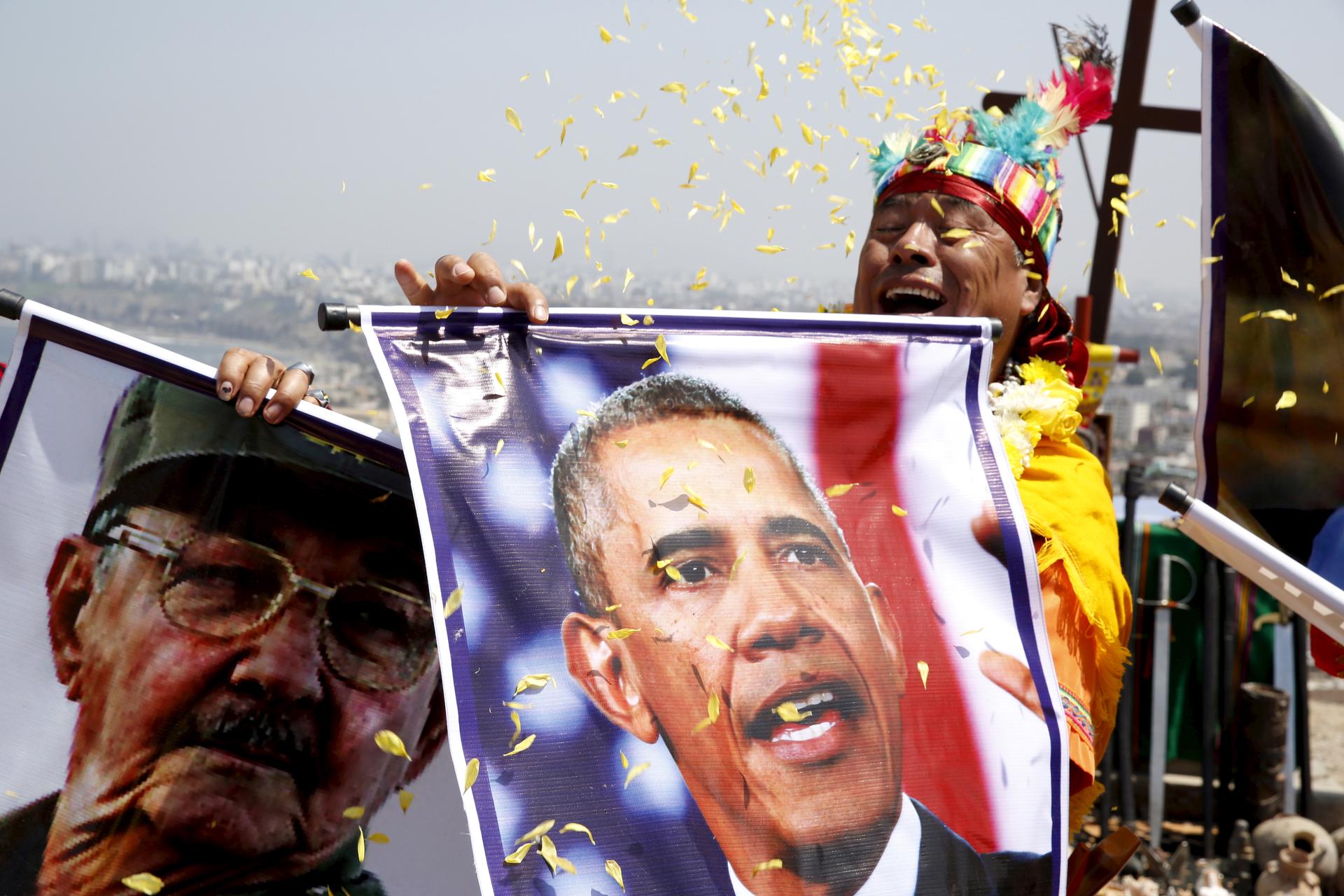Obama will be hard pressed to secure advances in human rights and trade while in Cuba
Peruvian shamans holding a poster of Cuba's President Raul Castro and US President Barack Obama perform a ritual of predictions for the new year at Morro Solar hill in Chorrillos, Lima, Peru, December 29, 2015.
When President Barack Obama arrives in Cuba this coming week, "There will be images of Cubans lining the street applauding the president of the United States in great masses," says Peter Kornbluh, director of the Cuba Documentation project at the National Security Archive.
But Kornbluh doesn't expect many concrete advances in US-Cuba relations to come from the president's trip, especially when it comes to human rights.
"The Cubans aren't into quid pro quos, they don't make concessions, they don't yield to demands, they don't do horse trading," Kornbluh says. "And I don’t think we can expect to see Raúl Castro meeting the demands of the United States on human rights in a very high profile trip by the president of the United States."
Kornbluh says the Cuban government mainly wants to see the US-controlled land where Guantánamo Bay Naval Base is returned to Cuban sovereignty, and "when the United States raises issues of human rights with the Cubans, the Cubans of course raise issue of the human rights of what's going on at the Guantánamo Base."
Since Obama's 2014 announcement of a move toward normalizing relations with Cuba, task forces have been set up for both countries to negotiate human rights issues — on both ends relating to treatment of imprisoned people.
Also since the 2014 announcement, 500 American businesspeople have made the pilgrimage to Cuba to try their hand at trade opportunities. But John Kavulich, president of the US-Cuba Trade and Economic Council, says they haven't been able to do much.
He says the Cuban government has been interested in American business initiatives only if they will generate revenue for the Cuban government. And in the last 15 months, two small companies have received authorization to have an operational presence in Cuba, he says, but have partial authorization from the Cuban government.
"Now it's a matter to see if they actually come to fruition," Kavulich says. "But what we do have is a breathtakingly large number of aspirational thinkers who go down to Cuba, see 11.3 million potential customers and believe that they have the answer. And then they're introduced to someone who knows who they need to speak with, and in the end, they come back disappointed."
Since 2014, the Obama Administration has announced a series of changes in the US-Cuba relationship, but Kavulich says the Cuban government has either remained silent or said "no" on most of those. The most recent one pertaining to trade, however, "That's a very big deal."
The US removed restrictions on Cuba's use of the US dollar for international transactions. "The question now will be how the Cuban government responds," Kavulich says.
Ultimately, Obama's efforts to rekindle relationships with this island neighbor meet with an undercurrent of resistance going back to the mid-20th Century Cuban revolution.
"Part of what President Obama's initiatives have helped to reestablish is the middle class in Cuba," Kavulich says. "And the Cuban revolution was much about ridding Cuba of its middle class."
Every day, reporters and producers at The World are hard at work bringing you human-centered news from across the globe. But we can’t do it without you. We need your support to ensure we can continue this work for another year.
Make a gift today, and you’ll help us unlock a matching gift of $67,000!
